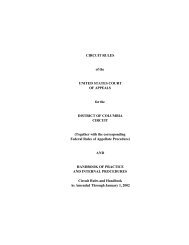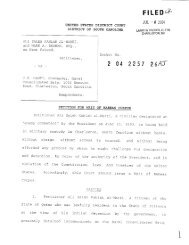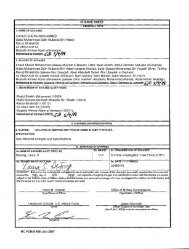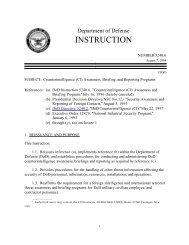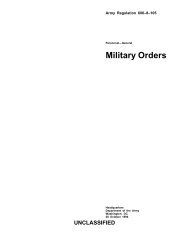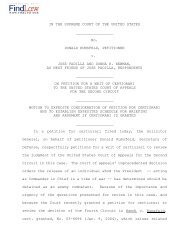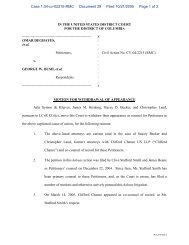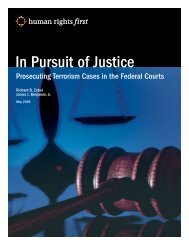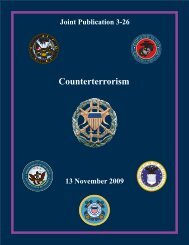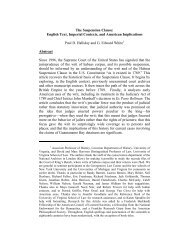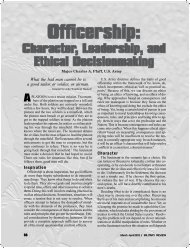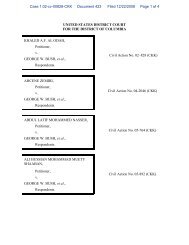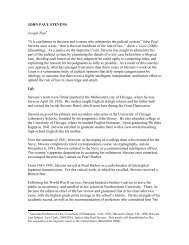Government Merits Brief - Hamdan v. Rumsfeld
Government Merits Brief - Hamdan v. Rumsfeld
Government Merits Brief - Hamdan v. Rumsfeld
You also want an ePaper? Increase the reach of your titles
YUMPU automatically turns print PDFs into web optimized ePapers that Google loves.
13<br />
entertaining “habeas petitions by military prisoners unless all<br />
available military remedies have been exhausted.” Id. at 758.<br />
The abstention rule of Councilman applies a fortiori<br />
where, as here, the President, acting in his capacity as Commander<br />
in Chief and in express reliance on congressional authorization,<br />
established the military commissions at issue<br />
upon finding that they are “necessary” for “the effective conduct<br />
of military operations and prevention of terrorist attacks.”<br />
Military Order § 1(e). Because the Military Order<br />
applies to alien enemy combatants who are captured during<br />
the ongoing war with al Qaeda, both the traditional deference<br />
this Court pays to the military justice system and the vital<br />
role played by that system are at their pinnacle. See<br />
Yamashita, 327 U.S. at 11 (“trial and punishment of enemy<br />
combatants” for war crimes is “part of the conduct of war<br />
operating as a preventive measure against such violations”);<br />
Hirota v. MacArthur, 338 U.S. 197, 208 (1949) (Douglas, J.,<br />
concurring) (“punishment of war criminals * * * dilut[es] enemy<br />
power and involv[es] retribution for wrongs done”).<br />
The two grounds on which the court below distinguished<br />
Councilman do not render it inapplicable. First, Quirin, on<br />
which the court of appeals relied, does not provide a basis for<br />
distinguishing Councilman, because it predated Councilman<br />
by over 30 years. In addition, Quirin did not involve the enjoining<br />
of a military commission, but did involve a presumed<br />
American citizen facing an imminent death penalty. Moreover,<br />
the United States did not request abstention in that<br />
case. Cf. Lewis v. Casey, 518 U.S. 343, 352 n.2 (1996) (noting<br />
that “the existence of unaddressed jurisdictional defects has<br />
no precedential effect”). This case, by contrast, involves an<br />
alien enemy combatant captured abroad who does not face the<br />
death penalty and who may seek judicial review if an adverse<br />
decision is rendered.



